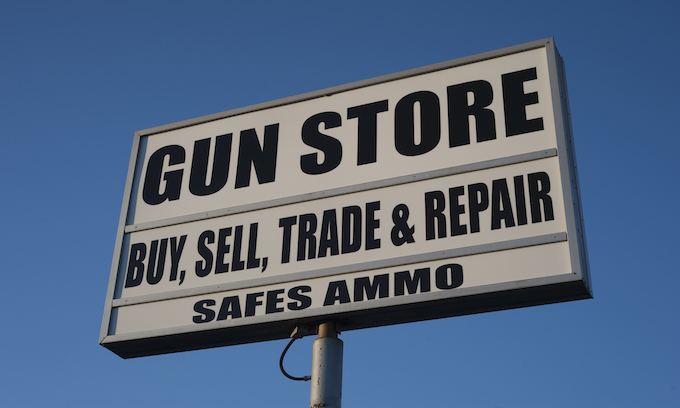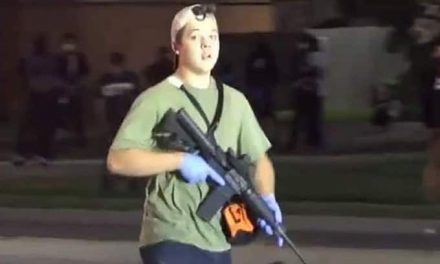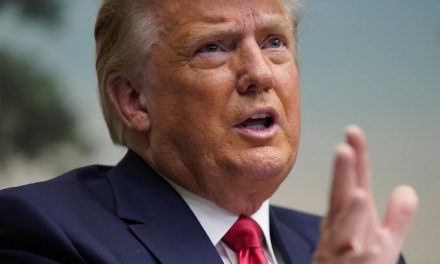Take your pick. The pandemic, the police killing of George Floyd, the presidential election. Protests, looting, calls to “defund the police.”
Any one of such similar events historically has been enough to push some people off the fence, prompting them to finally buy a gun or add to their collection.
But with a wave of crises crashing across the country, more than 40,000 Illinoisans applied for a gun permit in a little more than two weeks this month, more than 500% over this time last year, according to Illinois State Police.
Gun sales are soaring at Mark Glavin’s gun shop in Elgin, from an average of 10 a day last year to as many as 200 a day this year. With so many gun purchases, he said, ammunition also can be hard to find.
“Take a full glass of coronavirus, shake in a shot of riots and another of this defund police notion, and everything goes crazy,” said Glavin, owner of Fox Valley Shooting Range. “Not to mention the backlog on background checks.”
The mandatory 72-hour background check — required by the state before getting a gun — has stretched to more than a week for some of his customers. On Monday, he was still waiting on five backgrounds he submitted on June 16, eight from June 17 and seven from Thursday.
The firearms services bureau of the Illinois State Police is taking an average of 94 business hours — not counting holidays, weekends, the day the gun is purchased, or the day the sale is approved or denied — to process background checks, roughly a day longer than usual, according to state police spokeswoman Beth Hundsdorfer.
The bureau is responsible for issuing firearm owner’s identification cards and concealed carry licenses, as well as conducting background checks for licensed gun dealers when a sale is made. Its work started to pick up in March and has spiked in June, Hundsdorfer said.
From June 1 to June 17, there were more than 42,000 applications for FOID cards, compared with about 7,000 during the same time last year, a 501% increase.
The 42,089 applications over those 17 days come close to the 48,194 applications submitted in the months of December, January and February combined. Applications reached nearly 5,000 on a single day in June.
“We know that traditionally there’s an uptick in gun purchases around elections and major tragedies,” said Noam Ostrander, an associate professor of social work at DePaul University who has worked extensively with victims of gun violence and police brutality in Chicago.
“We saw, certainly, people buying a lot of guns after Barack Obama was elected because people thought, ‘Oh my God, they’re going to take away my guns.’ And we saw a strong rise in gun ownership among Black Americans after (Donald) Trump was elected because there was a witnessing of an emboldening of white supremacist groups and, I think, a fear,” Ostrander said.
“There’s two big predictors of gun ownership — not sport-type rifle owners — but among new gun owners usually, and that is perceived risk of victimization and then a belief that the world is a dangerous place,” he continued. “And if we dig into that second one, right, the world does look like a dangerous place right now.”
Dan Eldridge, owner of Maxon Shooter’s Supplies and Range in Des Plaines, said nearly half the customers clamoring for appointments these days appear to be first-time buyers.
“The numbers I saw from the National Shooting Sports Foundation … said 40% of respondents to (store) surveys were new, first-time buyers. And of those, 40% are female — 40% of the 40%,” Eldridge said. “We’re tracking 150% of a typical May in firearms sales … and that’s with being open by appointment only.”
But those aren’t the numbers he found surprising.
“One stat that jumped out at me was defensive ammunition,” he said. “You have two flavors of ammo, practice — or range — and self-defense, hollow-point, which is much more expensive. We saw May 2020 over May 2019 firearms sales were twice as high and defensive ammunition was 10 times as high.
“I’ll draw the obvious conclusion, which is that the number of new guns that are going into circulation is not as noteworthy,” he continued. “What is significant is a whole lot of people who have firearms for their house or self-defense are saying, ‘I’d better have some ammunition for this thing or it’s not going to do me any good.’”
‘I have accepted the Second Amendment’
Alexandra Filindra, an associate professor of political science at the University of Illinois at Chicago, said there’s plenty of research and anecdotal evidence to suggest many of those white, first-time gun buyers may consider themselves politically progressive, but any perceived disruption to the status quo may expose underlying reasons to pull the trigger on a gun purchase.
“It’s not so much a security concern, though they may tend to want to misidentify it as fear,” she said. “But typically people who are highly anxious and afraid tend to be more supportive of gun control.”
A 38-year-old man from Dixon — who didn’t want his name used, citing employment reasons — described himself as “a very liberal Democrat” who for decades has been “for most forms of gun control politically.” But since March, he’s been waiting for his first gun permit to arrive so he can keep his family safe, he said.
“My views have recently changed, and I have accepted that the Second Amendment provides for the personal ownership and use of a firearm,” he said in an email. “The recent social unrest of a divisive president, the pandemic and dramatic rise in unemployment, and the more recent social unrest because of the way we police in this country have all been reasons that have prompted my recent application.”
David Lombardo, owner of Safer USA and a concealed carry gun instructor, said he’s had several callers lately who candidly disclosed their political beliefs and asked him for one-on-one training, because “they don’t want anyone to know they’re doing the training, let alone going to buy a firearm.”
“I have seen the emergence of a new class of students seeking training: anti-Second Amendment liberals,” he said.
Carrie Lightfoot, founder of the popular shooting blog The Well Armed Woman, said there’s nothing hypocritical about changing your views when the world around you is changing. And she’s not surprised women make up a good portion of these new gun buyers.
Women have always understood they are at a disadvantage when it comes to a male aggressor who will likely be taller, heavier and stronger. Now we are “all shaken to our core” by world events, which is why “it is only natural” women are arming themselves, she said.
“I am seeing women come to gun ownership who literally just weeks or months ago were opposed to people owning guns personally,” Lightfoot said. “Sometimes, it is in moments of personal need and through our personal concerns that our life’s context changes.”
Buying a gun is one way of feeling in control, despite the risks and past beliefs, according to Leonard Jason, a professor of community psychology at DePaul University.
“It seems like it’s something you can do and you think that that is going to have an effect on the problem,” he said. “It’s really like a coping strategy. Why do people use unhealthy coping strategies, do things like overeat or smoke cigarettes or drink alcohol, use drugs, do things that are not going to help but rather hurt them?
“We often do things that are not rational,” Jason added. “What we think is right and what we think we should do is not often the same.”
‘Life as an armed self-protector’
Ostrander, from DePaul, believes more emphasis should be placed on training with all the new buyers. He cited data showing male first-time gun owners are eight times more likely to accidentally shoot themselves than those in gun-free homes.
“If they feel safer having 5 pounds of metal in their home, then at least let’s try to get some basic instruction going. Some standard gun safety,” he said.
Gun shop owners reached by the Tribune also support training and have added instructors and classes to keep up with the new customers, but social distancing and other concerns from the pandemic are making it difficult.
Glavin said he has added an extra shooting range officer at his Elgin shop. Both he and Eldridge, in Des Plaines, said new classes fill as soon as they are announced. With social distancing requirements, they must limit classes to nine students (the instructor makes 10).
Lightfoot, who offers an online instructional video for women starting out, said now more than ever, “diligent research” is required when turning to the internet for instruction.
“The challenges that these new gun owners face is getting the information, education and training that is necessary as they begin their life as an armed self-protector,” she said.
‘No way of knowing’
The strain is being felt at the 30-person firearms services bureau, where 24 employees process applications for FOID cards and concealed carry permits. Six others work solely on processing background checks required when someone tries to buy a gun.
Nine more employees are scheduled to begin work in July. And the state police intend to hire an additional 20 employees, bringing the total to 59, according to spokeswoman Hundsdorfer.
Even before the recent surge, the state police were facing criticism for delays in processing applications. A lawsuit filed in January accused state police of violating the “fundamental individual rights” of gun owners. The state police acknowledged that at least 10% of applications were taking longer than the legally required 30 days to process.
Then the pandemic hit in March, followed by the fallout from Floyd’s death on May 25. On any given day, about 1,135 new users register on the firearm services bureau website. “On May 31, there were 6,467 new users. On June 1, there were 9,558 new users,” Hundsdorfer said. “On average, the current staff works an extra week in overtime hours every month to address application processing needs.”
The agency also took the unprecedented step of automatically extending for a year all FOID and concealed carry permits up for renewal in 2020, Hundsdorfer said. The goal was to provide “relief from the renewal requirements during the effects of COVID-19 pandemic,” she said.
The extension was announced in mid-April, and Eldridge thought it was a smart idea that would speed things up. But that hasn’t happened, he said. “If you didn’t have a FOID before all this started, you’re not getting a gun.”
Jim Leckinger, a 58-year-old former naval officer living in Aurora, “had to maintain qualifications on a variety of weapons” during that career but hasn’t handled guns since. In March, he inherited two antique guns from the 1800s, which he took to get cleaned by a gunsmith. He was told he couldn’t get them back — he plans to display them in a shadowbox — until he produces a firearms identification. He has been awaiting approval from state police since March 28.
“I don’t have a lot of interactions with government agencies, but this one has to be the poorest-run organization in Illinois,” he said, noting he’s called three times and emailed the agency twice, trying to get an update. “They are absolutely unresponsive.”
Glavin said his store requested 507 background checks for gun sales between June 1 and June 17. During a similar period last June, he requested 54. When he sells a gun, he can’t hand it over until the buyer clears the background check.
He said since the pandemic began, he’s added shelving and had to invent a new filing system to ensure he gives each customer the correct gun — out of maybe 200 he’s sold in a day. With background checks taking eight or nine days, that’s close to 2,000 guns to keep track of.
Jason, the psychology professor from DePaul, thinks gun sales may remain high for some time because people don’t know when a sense of normalcy will be restored.
“We just have no way of knowing,” he said.
___
(c)2020 the Chicago Tribune
Visit the Chicago Tribune at www.chicagotribune.com
Distributed by Tribune Content Agency, LLC.
—-
This content is published through a licensing agreement with Acquire Media using its NewsEdge technology.



















Recent Comments